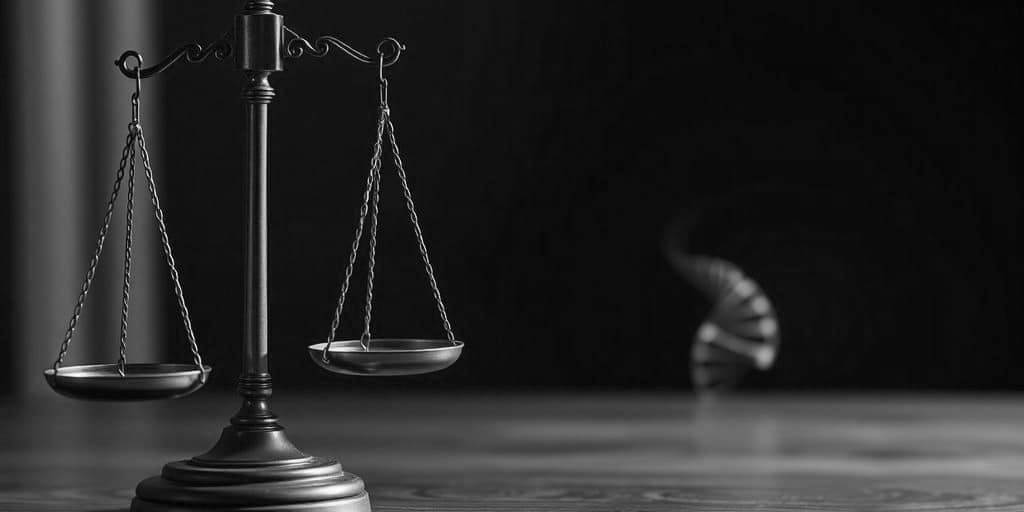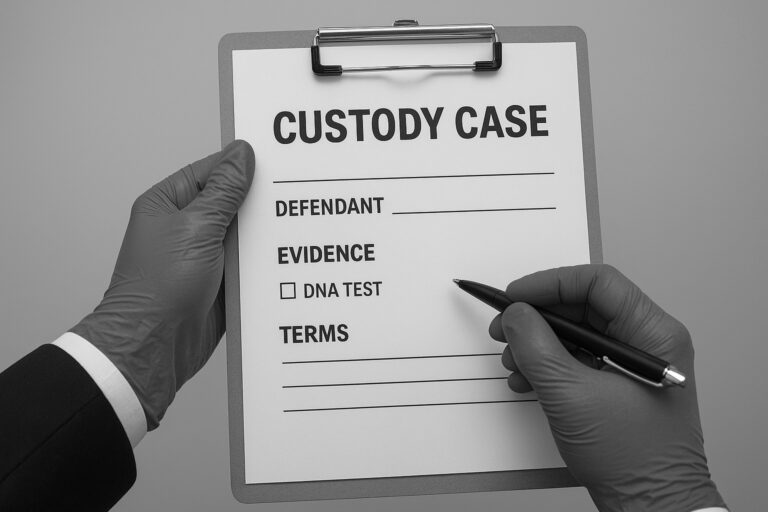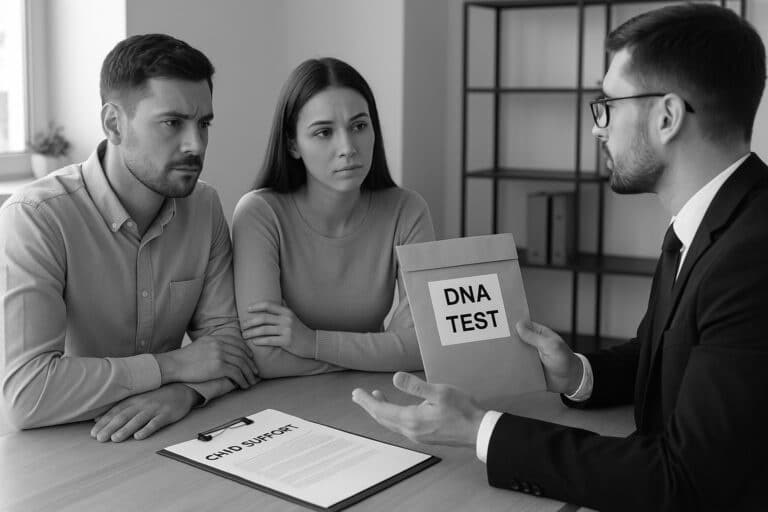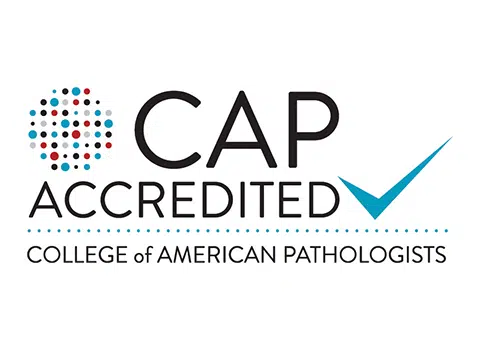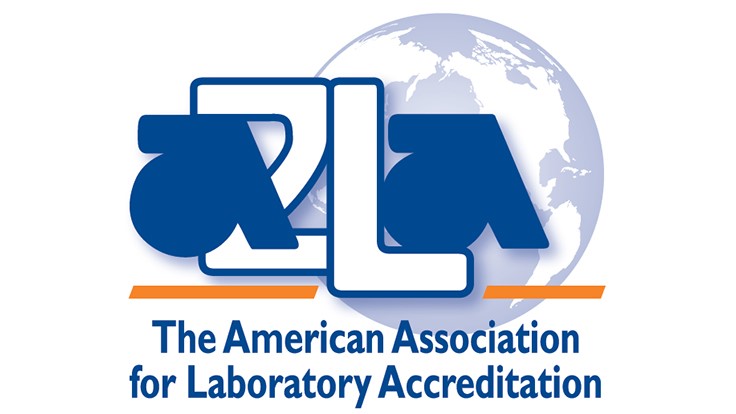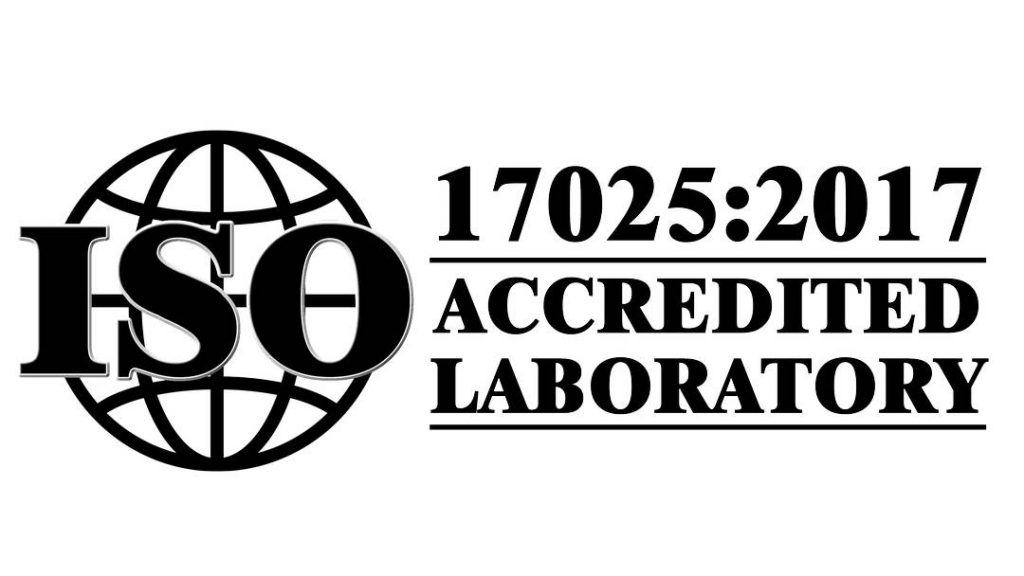Table of Contents
ToggleWhy Legal DNA Testing is Required in Court Cases
You’ve probably wondered why DNA testing is such a big deal in legal cases. It’s not just for TV shows; it’s a powerful tool that courts rely on. Whether you’re dealing with family law, criminal investigations, or even immigration, DNA evidence can be the deciding factor. Let’s look at why DNA testing is required in court cases and what it means for you.
Key Takeaways
DNA tests are often the only scientific proof accepted to confirm biological parentage in court, helping resolve disputes over inheritance and child support.
In criminal cases, DNA evidence from crime scenes can identify suspects and link offenders to past crimes, providing strong proof in trials.
For DNA evidence to be used in court, the testing methods must be scientifically accepted, experts must be qualified, and the chain of custody must be properly maintained.
Defendants have the right to access all laboratory data and protocols related to their DNA testing, allowing for independent expert review to prepare a fair defense.
DNA testing plays a role in family law for issues like alimony, child custody, and parental responsibility, and is also used for verifying family ties in immigration cases.
Establishing Paternity and Family Relationships

When questions about who is biologically related to a child arise in legal settings, DNA testing becomes a vital tool. Courts often require these tests to settle matters of family relationships definitively.
Confirming Biological Parentage in Court
Courts can order a parentage testing order if there’s a reasonable doubt about who the biological parent is. This might happen if, for instance, you were not married to the mother at the time of conception or if there’s a dispute about living arrangements during the period of conception. The results of a DNA test are highly accurate and are generally accepted by the court as fact. This scientific evidence helps resolve parentage disputes with a high degree of certainty.
Resolving Inheritance Disputes
Disputes over inheritance often hinge on establishing biological lineage. If someone claims to be an heir but their biological relationship is questioned, a DNA test can provide the necessary proof. This helps ensure that inheritances are distributed according to the deceased’s wishes and legal statutes, preventing potential conflicts among family members. It’s a way to make sure the right people are recognized in matters of family relationships.
Determining Child Support Obligations
Child support calculations are directly tied to biological parentage. If a man is confirmed as the biological father through DNA testing, he may be legally obligated to pay child support. Conversely, if a test proves he is not the biological father, he might be reimbursed for any child support already paid. This process clarifies financial responsibilities and ensures fairness for all parties involved.
Role of DNA Testing in Criminal Investigations
Identifying Suspects at Crime Scenes
When a crime occurs, investigators often find biological material left behind, like blood, hair, or saliva. DNA analysis of this material can create a unique genetic profile. This profile can then be compared to known suspects or databases to identify potential perpetrators. It’s a powerful tool for narrowing down a list of individuals or even directly implicating someone. For instance, if a suspect’s DNA matches the sample found at the scene, it strongly suggests their presence. This type of forensic biology is a cornerstone of modern investigations.
Linking Offenders to Past Crimes
DNA databases are invaluable for connecting individuals to crimes they may have committed previously. When a suspect is arrested, their DNA can be collected and compared against samples from unsolved cases. A match can reopen cold cases and bring closure to victims and their families. It helps law enforcement understand patterns of criminal behavior and identify serial offenders who might otherwise go undetected. This process is a key part of how DNA evidence is used to build a case.
Providing Conclusive Evidence in Trials
In court, DNA evidence can be incredibly persuasive. When properly collected and analyzed, it offers a high degree of certainty about a person’s involvement in a crime. The scientific rigor behind DNA testing means that results are generally accepted as reliable. This can be the deciding factor in securing a conviction or, conversely, in proving someone’s innocence. You’ll often see expert witnesses explain the complex science behind these matches to the judge and jury, making the evidence understandable and impactful. The accuracy of forensic biology is paramount here.
Legal Standards for DNA Evidence Admissibility
When DNA evidence is presented in court, it has to meet certain standards to be accepted. Think of it like a quality check for scientific information. The court needs to be sure the science behind the DNA testing is solid and that the way the test was done is reliable.
Scientific Acceptability of Testing Methods
First off, the actual science used in the DNA testing needs to be generally accepted within the scientific community. This means the underlying principles of how DNA is analyzed are understood and trusted. It’s not just about whether a specific lab can do the test, but whether the method itself is sound. Courts look at whether the techniques used, like PCR or STR analysis, are proven and reliable ways to identify genetic material. This scientific acceptance is a big hurdle for any DNA evidence to clear.
Expert Qualifications and Testimony
Next, the person presenting the DNA evidence, usually a scientist or technician, must be qualified. They need to have the right education, training, and experience in DNA analysis. Their testimony isn’t just about stating the results; they have to explain how the test was performed, what the results mean, and how they connect to the case. You’ll often see these experts explain complex scientific ideas in a way that a judge or jury can understand. It’s about making sure the person explaining the science actually knows their stuff.
Ensuring Proper Chain of Custody
Finally, there’s the chain of custody. This is a detailed record that tracks the DNA sample from the moment it’s collected until it’s presented in court. It shows who handled the sample, when, where, and why. This is super important because it proves the sample wasn’t tampered with, mixed up, or contaminated. If there’s a break in this chain, the evidence could be questioned or even thrown out. You need to be able to show that the sample tested is the exact same sample collected from the scene or person. This meticulous tracking is vital for maintaining the integrity of the evidence, and you can find more about its importance in criminal investigations on pages like DNA profiling is a forensic technique.
Here’s a quick rundown of what’s checked:
Scientific Validity: Is the testing method proven and accepted?
Expert Credibility: Does the person presenting the evidence know what they’re talking about?
Sample Integrity: Was the DNA sample handled correctly from start to finish?
The Defendant's Right to Discovery and Review

When DNA evidence is presented in court, you have the right to examine the details behind those results. This process, known as discovery, allows you to access the raw data and the methods used in the testing. It’s not enough for the prosecution to simply say the DNA matches; you need to see how they arrived at that conclusion. This is a key part of preparing your defense and ensuring a fair trial. Without this information, you can’t properly challenge the evidence or understand its limitations.
Access to Laboratory Data and Protocols
You should be able to get your hands on the actual lab reports, data sheets, and the specific protocols followed during the DNA analysis. This includes information about the software used and any databases that might have been consulted. Think of it like wanting to see the ingredients and the recipe, not just the finished cake. If the lab keeps its methods secret, it’s hard to know if the results are reliable. Sometimes, courts have been a bit strict about what’s discoverable, especially if it’s not in a written report, but the general idea is that you should have access to the technical details.
The Importance of Independent Expert Review
Having access to the lab’s information lets you bring in your own expert to look over everything. This independent review is super important. Your expert can check if the lab followed all the right steps, if the equipment was calibrated correctly, and if the interpretation of the results makes sense. They can spot potential errors or biases that might not be obvious otherwise. It’s like having a second opinion on a medical diagnosis; it helps confirm accuracy or uncover issues. This is why having access to the lab’s data is so vital for your defense.
Ensuring Fair Trial Preparation
Ultimately, all of this boils down to making sure you can prepare your defense properly. If you can’t get the details about the DNA testing, you’re at a disadvantage. You might not know how to question the prosecution’s expert witness or what alternative explanations might exist for the DNA evidence. The goal is to have all the necessary information so you can present your case effectively and have a fair shot in court. Organizations like Investigating Innocence work to help individuals who have been wrongfully convicted, often by scrutinizing evidence like DNA results. Access to evidence is a cornerstone of this effort.
DNA Testing in Family Law Matters

Family law cases often involve complex questions about relationships, and DNA testing provides a clear, scientific way to answer them. When you’re dealing with matters like child support or custody, establishing biological parentage is frequently a key part of the process. Courts rely on DNA test results because they offer a high degree of certainty.
Alimony Liability and Paternity
In situations where financial obligations are being determined, especially concerning children, parentage can be a point of contention. Allegations about who is or isn’t a biological parent might arise. A DNA test can settle these questions, directly impacting whether a father is liable for alimony payments. The results can be quite definitive in these financial matters.
Child Custody and Visitation Rights
When courts decide on child custody and visitation, the child’s best interests are paramount. DNA testing can play a role in confirming biological parentage, which can influence who has decision-making power and where a child lives. Even if you’re not the biological parent, a DNA test might still affect your standing in proceedings related to a child’s welfare. The court will only order a test if there’s a genuine question about parentage and it’s deemed necessary to avoid potential harm to the child.
Parental Responsibility Determinations
Determining who holds parental responsibility often hinges on biological ties. If a DNA test confirms you are the biological parent, it can lead to specific legal responsibilities, such as child support. Conversely, if a test shows you are not the biological parent, it could mean you are not liable for past support payments. The process for collecting samples is quite specific, usually involving a non-invasive swab taken by an accredited lab. You’ll need to complete paperwork, sign sample labels, and have a photo taken to ensure the chain of custody is maintained, which is vital for legal identification.
The accuracy of DNA testing means courts often accept the results as fact when making decisions about family matters. This scientific evidence helps bring clarity to potentially emotional and complicated legal disputes.
Immigration and Other Legal Applications
Verifying Family Ties for Immigration
DNA testing plays a significant role when you need to prove family relationships for immigration purposes. If you’re trying to bring a relative to the country, establishing a biological connection can be a key part of the application process. Without DNA testing, proving these links could be really difficult and open to mistakes. However, a simple DNA test can help identify relatives and speed up visa applications. It’s a way to provide concrete proof of family ties that immigration authorities can accept.
DNA Testing for Legal Identification
Beyond family relationships, DNA testing is also used for general legal identification. This can be important in various legal situations where confirming someone’s identity is necessary. The results offer a scientific basis for identification, which is often more reliable than other methods. This kind of testing can be the only scientific proof accepted in certain legal contexts.
Admissibility in Various Legal Proceedings
DNA evidence has become a standard in many types of legal cases. Courts have generally accepted DNA profiling as reliable, though specific laboratory procedures and statistical interpretations can sometimes be debated. The scientific principles behind DNA testing are widely recognized, but challenges might arise regarding how the tests were performed or how the results were analyzed. Courts often consider the scientific acceptability of the testing methods and the qualifications of the experts presenting the evidence. This ensures that the DNA evidence presented is both accurate and understandable within the legal framework. For instance, in cases involving patent disputes, the scientific basis of a technology might be examined, similar to how DNA testing methods are scrutinized in court.
Our services extend to immigration and other legal matters. We understand that these situations often require precise and reliable DNA testing. Whether it’s for citizenship, legal cases, or other important life events, we provide the accuracy you need. Visit our website today to learn more about how our DNA testing can support your legal journey.
The Bottom Line on Legal DNA Testing
So, as you can see, DNA testing isn’t just for TV crime shows. When you’re dealing with legal matters, especially those involving family relationships or criminal investigations, DNA evidence often becomes the deciding factor. It’s the scientific proof that courts rely on to get to the truth. Whether it’s sorting out inheritance, confirming parentage for child support, or identifying suspects in criminal cases, these tests provide clear answers. Because the science is so solid, courts generally accept these results as fact. It really highlights how important accurate, legally admissible DNA testing is for fairness in the justice system.
Frequently Asked Questions
Why is DNA testing used to prove parentage in court?
In court, DNA testing is often used to confirm if someone is the biological parent of a child. This is crucial for legal matters like child support or inheritance. It provides clear, scientific proof that judges and juries can rely on.
How does DNA testing help solve crimes?
DNA evidence is vital in criminal cases. It can link a suspect directly to a crime scene by matching DNA found there with the suspect’s DNA. This can be powerful evidence that helps prove guilt or innocence.
What makes DNA evidence acceptable in court?
For DNA evidence to be accepted in court, the testing methods must be scientifically proven and reliable. The people performing the tests need to be qualified experts, and the samples must be handled correctly from start to finish to avoid any mix-ups.
Can I see the details of my DNA test results?
Yes, you have the right to see all the information related to your DNA test. This includes the lab’s procedures and the raw data. It allows your legal team or an independent expert to check the results and ensure everything was done properly.
How does DNA testing affect family law cases like custody or child support?
In family law, DNA tests can settle questions about who is responsible for child support. They also play a role in custody battles by confirming who the legal parents are, which affects decision-making power and visitation rights.
Are there other legal uses for DNA testing besides crime and paternity?
DNA tests can be used to prove family relationships for immigration purposes, helping to confirm if applicants are truly related to their sponsors. They are also used for legal identification in various situations where biological ties need to be proven.


